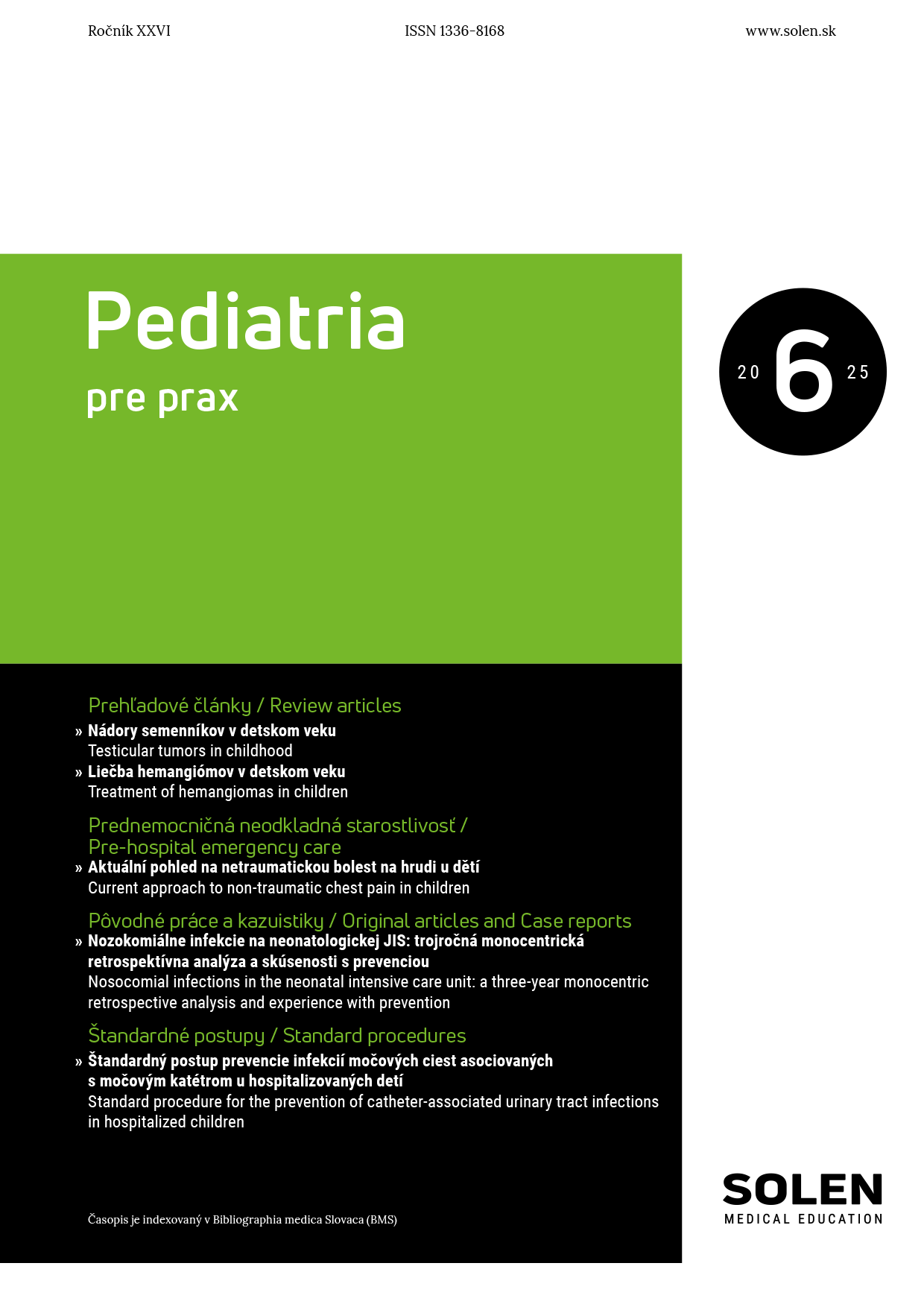Vaskulárna medicína 1/2025
Postpartum acquired hemophilia A – a case report
Summary: Acquired hemophilia A (AHA) is a rare, autoimune disorder that is caused by production of autoantibodies which inactivate factor VIII. Acute, severe to life-threatening bleeding dominates during the presence of FVIII inhibitor. The typical laboratory finding is isolated prolongation of activated partial thromboplastin time (aPTT), which does not adjust even after the mixing with normal plasma and low concentration of FVIII. In management it is important to have quick and right diagnostics, control of bleeding manifestations and elimination of autoantibodies by immunosuppressive therapy.
Case report: Case report describes the management of 27 year old patient who had strong vaginal bleeding with the need of revision and resuture of perineum and vagina. Recombinant activated factor VIIa (rfVIIa) was added to the treatment and after identifying the diagnosis immunosuppressive therapy was started immediately to eliminate the inhibitor.
Conclusion: While the FVIII inhibitor is not eliminated, patients with AHA have persisting risk of bleeding and fatal bleeding may develop even after several months. Clinical specialists often forget about AHA, which may lead to high risk of morbidity and mortality. It is important to identify this disorder on time and to choose the right and adequate treatment.
Keywords: acquired hemophilia A, FVIII inhibitor, bleeding, immunosuppressive therapy

















